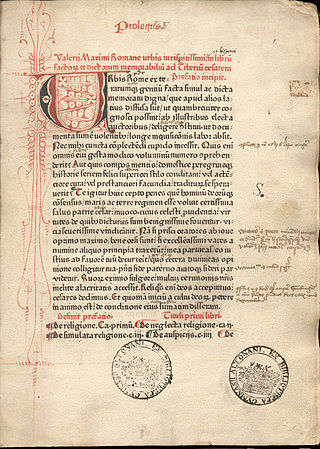
An incunable or incunabulum is a book, pamphlet, or broadside that was printed in the earliest stages of printing in Europe, up to the year 1500. Incunabula were produced before the printing press became widespread on the continent and are distinct from manuscripts, which are documents written by hand. Some authorities on the history of printing include block books from the same time period as incunabula, whereas others limit the term to works printed using movable type.

Octavo, a Latin word meaning "in eighth" or "for the eighth time", is a technical term describing the format of a book, which refers to the size of leaves produced from folding a full sheet of paper on which multiple pages of text were printed to form the individual sections of a book. An octavo is a book or pamphlet made up of one or more full sheets on which 16 pages of text were printed, which were then folded three times to produce eight leaves. Each leaf of an octavo book thus represents one eighth the size of the original sheet. Other common book formats are folios and quartos. Octavo is also used as a general description of the size of books that are about 8 to 10 inches tall, and as such does not necessarily indicate the actual printing format of the books, which may even be unknown as is the case for many modern books. These terms are discussed in greater detail in book sizes.

The Child Ballads are 305 traditional ballads from England and Scotland, and their American variants, anthologized by Francis James Child during the second half of the 19th century. Their lyrics and Child's studies of them were published as The English and Scottish Popular Ballads. The tunes of most of the ballads were collected and published by Bertrand Harris Bronson in and around the 1960s.

The National Library of Wales, in Aberystwyth, is the national legal deposit library of Wales and is one of the Welsh Government sponsored bodies. It is the biggest library in Wales, holding over 6.5 million books and periodicals, and the largest collections of archives, portraits, maps, and photographic images in Wales. The Library is also home to the national collection of Welsh manuscripts, the National Screen and Sound Archive of Wales, and the most comprehensive collection of paintings and topographical prints in Wales. As the primary research library and archive in Wales and one of the largest research libraries in the United Kingdom, the National Library is a member of Research Libraries UK (RLUK) and the Consortium of European Research Libraries (CERL).

The Pepys Library of Magdalene College, Cambridge, is the personal library collected by Samuel Pepys which he bequeathed to the college following his death in 1703.

"The Ballad of Chevy Chase" is an English ballad, catalogued as Child Ballad 162. There are two extant ballads under this title, both of which narrate the same story. As ballads existed within oral tradition before being written down, other versions of this once-popular song also may have existed.

A chapbook is a small publication of up to about 40 pages, sometimes bound with a saddle stitch.
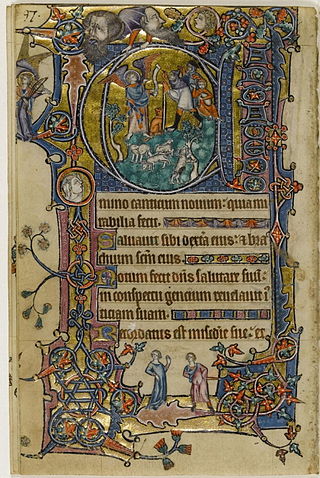
The Macclesfield Psalter is a lavishly illuminated manuscript probably produced c. 1320–30 in East Anglia. The psalter, or book of Psalms, contains 252 beautifully illustrated pages and is named after its most recent owner, the Earl of Macclesfield.
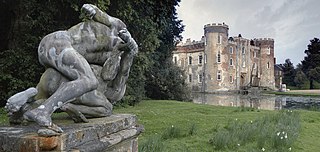
Shirburn Castle is a Grade I listed, moated castle located at the village of Shirburn, near Watlington, Oxfordshire. Originally constructed in the fourteenth century, it was renovated and remodelled in the Georgian era by Thomas Parker, the first Earl of Macclesfield who made it his family seat, and altered further in the early nineteenth century. The Earls of Macclesfield remained in residence until 2004, and the castle is still (2022) owned by the Macclesfield family company. It formerly contained an important, early eighteenth century library which, along with valuable paintings, sculptures, and other artifacts including furniture, remained in the ownership of the 9th Earl and were largely dispersed at auction following his departure from the property; notable among these items were George Stubbs's 1768 painting "Brood Mares and Foals", a record setter for the artist at auction in 2010, the Macclesfield Psalter, numerous rare and valuable books, and personal correspondence of Sir Isaac Newton.
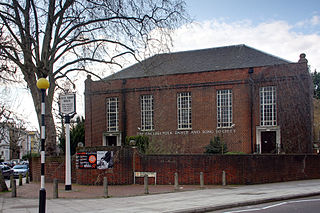
The Vaughan Williams Memorial Library (VWML) is the library and archive of the English Folk Dance and Song Society (EFDSS), located in the society's London headquarters, Cecil Sharp House. It is a multi-media library comprising books, periodicals, audio-visual materials, photographic images and sound recordings, as well as manuscripts, field notes, transcriptions etc. of a number of collectors of folk music and dance traditions in the British Isles. According to A Dictionary of English Folklore, "... by a gradual process of professionalization the VWML has become the most important concentration of material on traditional song, dance, and music in the country."
"King John and the Bishop" is an English folk-song dating back at least to the 16th century. It is catalogued in Child Ballads as number 45 and Roud Folk Song Index 302.

Humfrey Wanley was an English librarian, palaeographer and scholar of Old English, employed by manuscript collectors such as Robert and Edward Harley. He was the first keeper of the Harleian Library, now the Harleian Collection.

The British Library is a research library in London that is the national library of the United Kingdom. It is one of the largest libraries in the world. It is estimated to contain between 170 and 200 million items from many countries. As a legal deposit library, the British Library receives copies of all books produced in the United Kingdom and Ireland, including a significant proportion of overseas titles distributed in the UK. The Library is a non-departmental public body sponsored by the Department for Culture, Media and Sport.
The Glenmasan manuscript is a late 15th-century Gaelic vellum manuscript in the National Library of Scotland, Edinburgh, where it is catalogued as Adv.MS.72.2.3. It was previously held in the Advocates Library, Edinburgh, where it was classified as Gaelic MS LIII, and transferred to the National Library of Scotland on its foundation in 1925. The compilation contains Scottish Gaelic literary versions of tales of the Ulster Cycle, such as the Táin Bó Flidhais and Oided mac nUisnig.
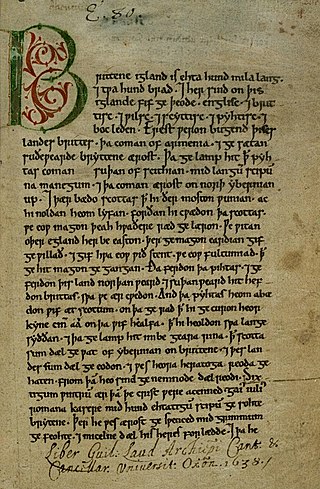
The Anglo-Saxon Chronicle is a collection of annals in Old English, chronicling the history of the Anglo-Saxons.
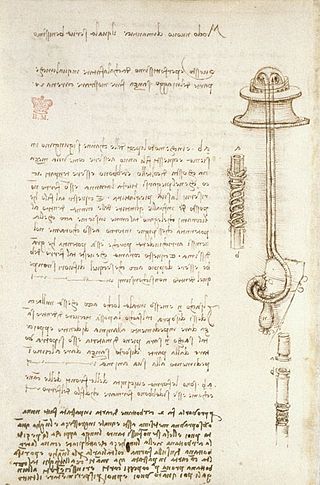
Codex Arundel, is a bound collection of pages of notes written by Leonardo da Vinci and dating mostly from between 1480 and 1518. The codex contains a number of treatises on a variety of subjects, including mechanics and geometry. The name of the codex came from the Earl of Arundel, who acquired it in Spain in the 1630s. It forms part of the British Library Arundel Manuscripts.
Reverend Dr Andrew Clark was a Church of England minister, a prodigious editor of literary and historical texts, and is now well known for his lengthy diary of the First World War.
"The Lamentable and Tragical History of Titus Andronicus,"also called"Titus Andronicus' Complaint," is a ballad from the 17th century about the fictional Roman general, Titus, and his revenge cycle with the Queen of the Goths. Events in the ballad take place near the end of the Roman Empire, and the narrative of the ballad parallels the plot of William Shakespeare's play Titus Andronicus. Scholarly debate exists as to which text may have existed first, the ballad or the play. The ballad itself was first entered on the Stationers' Register in 1594, the same year the play was entered. Surviving copies of the ballad can be found in the British Library, in the Huntington Library, and at Magdalene College, Cambridge. Online copies of the facsimiles are also available for public consumption at sites such as the English Broadside Ballad Archive.
Walter Newton Henry Harding (1883-1973) was a ragtime pianist, collector of rare books, primarily relating to music, and major donor to the Bodleian Library of the University of Oxford.















